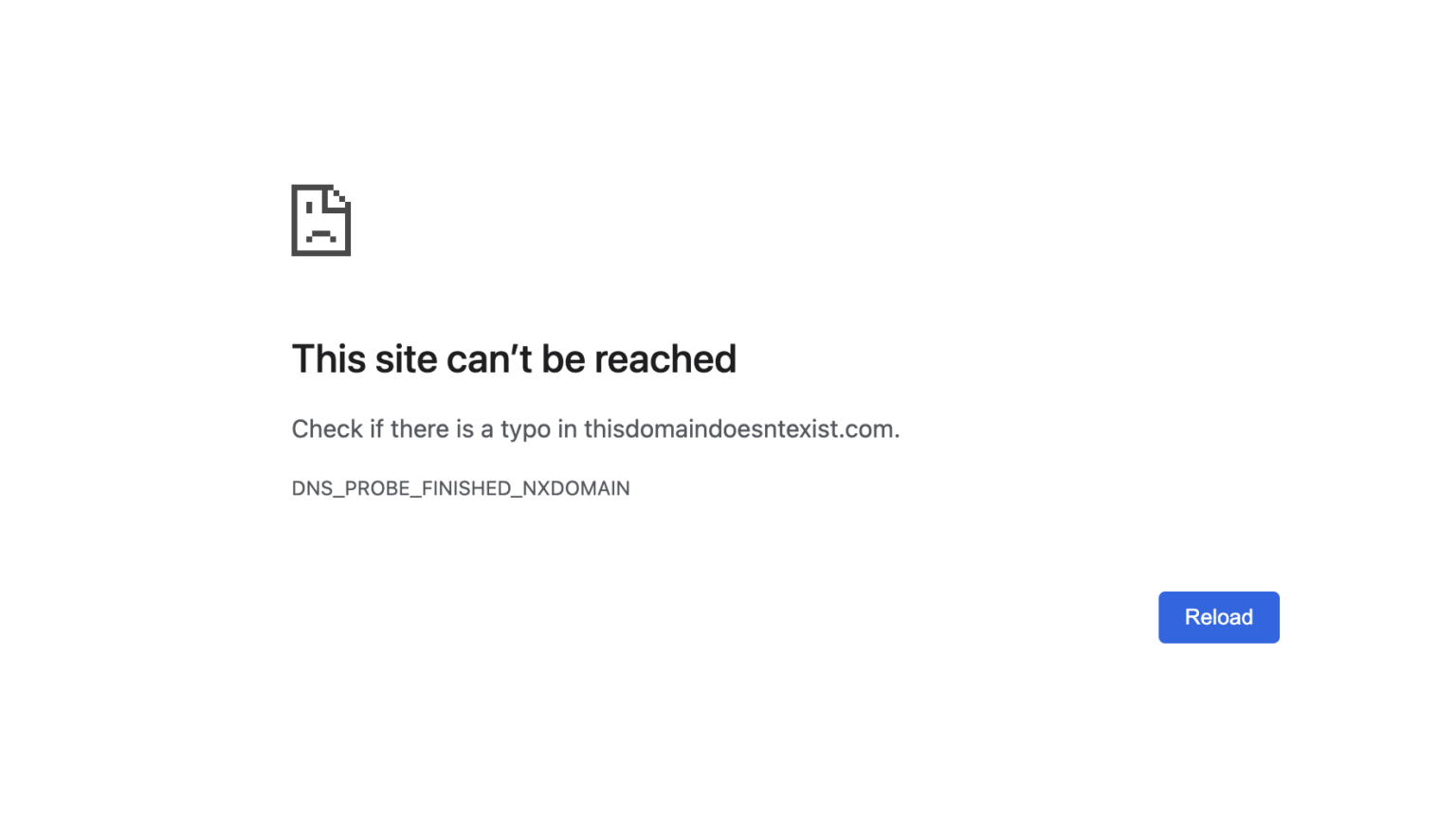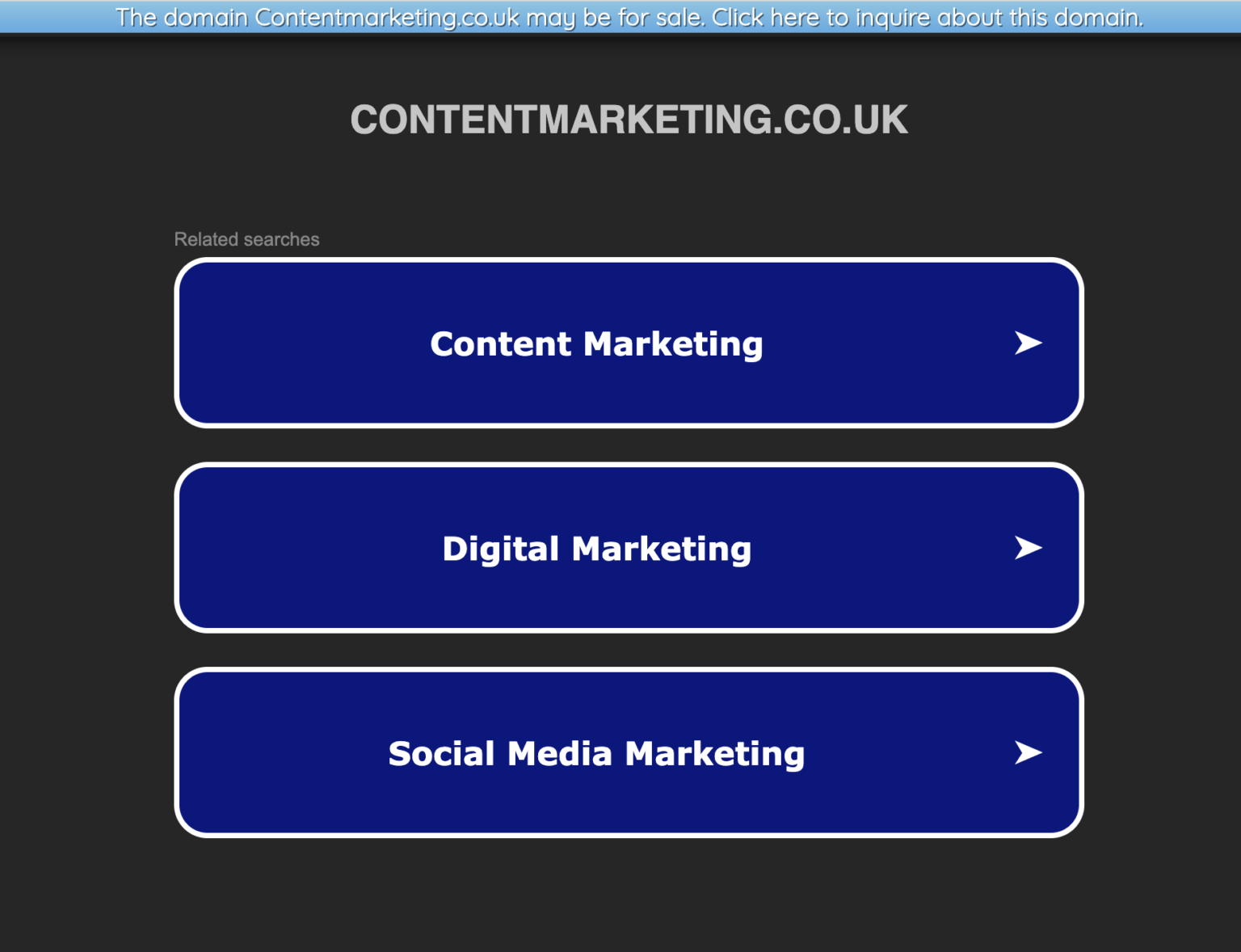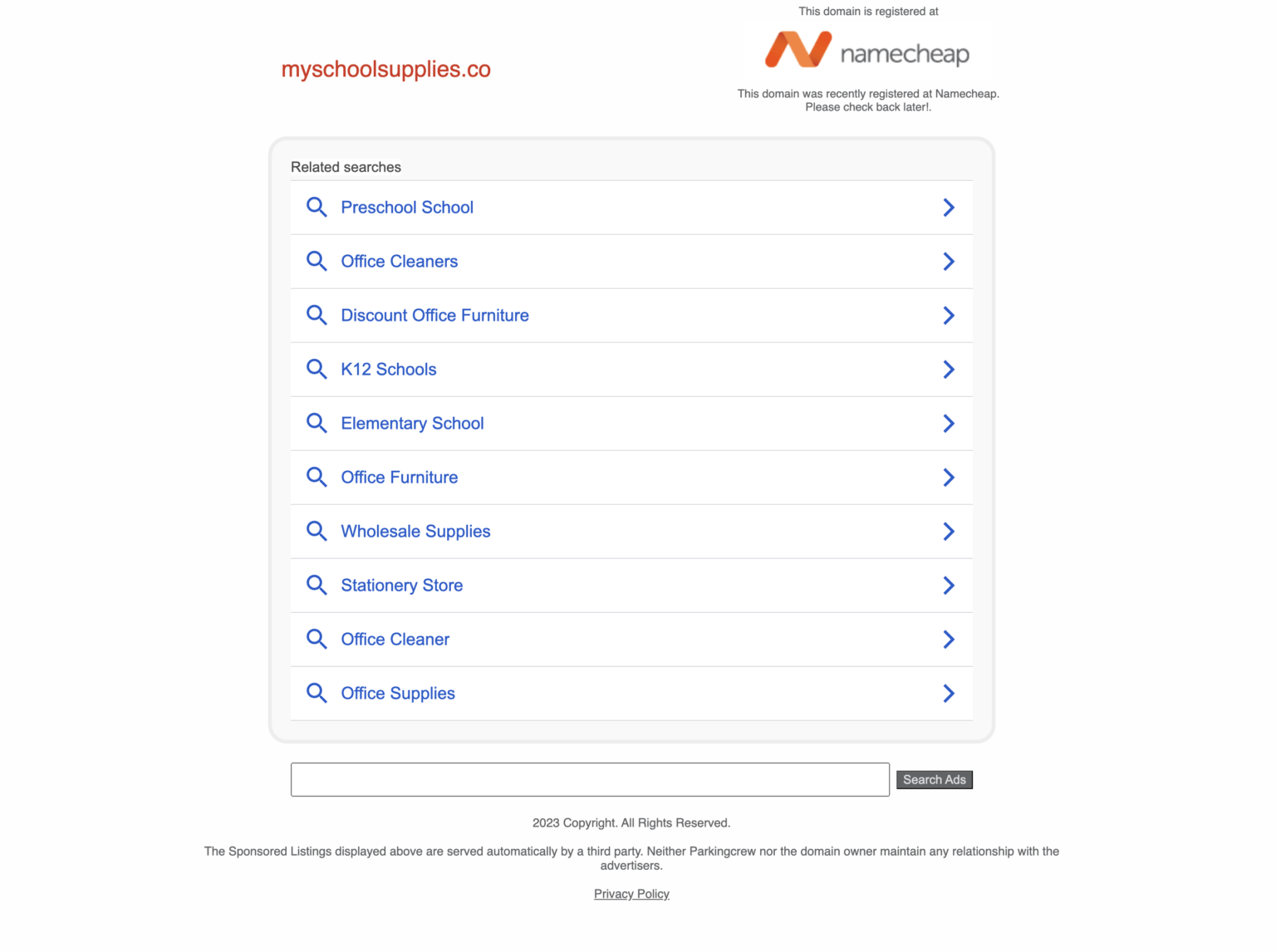Domain Levels: A Comprehensive Guide to Top-Level Domains (TLDs) and Domain Names
The finer details of domain name architecture can be pretty overwhelming to the uninitiated. In this post, domain name expert Joe Uddeme unravels the secrets behind TLDs, second-level domains and more.
In today’s digital landscape, domain names serve as the cornerstone of online identity. They are not just web addresses; they encapsulate your brand, convey professionalism, and influence user trust.
Understanding the actual domain is crucial, as it helps in structuring sub-domains effectively without confusing web visitors.
One of the most critical aspects of domain names is their structure within the domain name system and their organization in the dns hierarchy, including top-level domains (TLDs) and second-level domain names as well as third-level domain names.
This guide will explore the various types of TLDs, their implications for your online presence, and how to choose the right URL for your business when you want to buy a premium domain name.
Key takeaways
.com TLDs remain a prized asset
Up-and-coming TLDs such as .ai have a place in the market
A strong second-level domain is crucial for the success of your business
Discover some tips for registering a domain name that works for you
What Are Top-Level Domains?
Understanding TLDs
A top-level domain (TLD) is the last segment of a domain name, appearing after the dot. Domain extensions, such as generic top-level domains (gTLDs) and country-code top-level domains (ccTLDs), play a crucial role in website visibility and branding.
For example, in the domain name example.com, the TLD is .com. The second-level domain (SLD) is the component of a domain name located directly to the left of the TLD.
This becomes essential for creating memorable and relevant domain names that enhance SEO by better describing website content.
Third-level domains, or subdomains, exist to the left of second-level domains in a domain hierarchy and help in structuring website content, indicating different sections or language versions of a site.
TLDs categorize domain levels and can significantly influence a website’s branding and marketing efforts.
The Role of TLDs in the Domain Name System
TLDs provide crucial information about the nature of the entity associated with a domain.
The Internet Corporation for Assigned Names and Numbers (ICANN) and the Internet Assigned Numbers Authority (IANA) regulate and allocate domain names, ensuring that assigned names adhere to specific regulations and maintain uniqueness within the domain name system for internet infrastructure purposes.
They help users understand the purpose of a website, whether it’s commercial, organizational, or country-specific. Choosing the right domain extensions can enhance brand recognition and trust.
Types of Top-Level Domains (TLDs)
Second-level domain names refer to the target before the dot. Test.com is the second level domain with the keyword match–“test” in this example. Second level domain names can help consumers and individuals remember your brand.
Top-level domain names are generally categorized into several groups:
.com: Originally designed for commercial entities, it is now the most widely used TLD and is often the first choice for businesses and private agencies.
.org: Primarily used by non-profit organizations, this TLD conveys trust and community focus.
.net: Initially intended for network providers, it has become a versatile option for various types of websites.
.info: Designed for informational sites, this TLD is often used by resource-based websites.
Country Code Top-Level Domains (ccTLDs)
Country-code top-level domain names are a specific type of domain extension designated for particular countries or regions, emphasizing their implications for search engine optimization and regional, country-specific targeting.
Country code TLDs are the only top-level domain not governed by ICANN internet corporation for assigned names, differentiating them from other domain types and underscoring potential legal and usage restrictions based on geographic location.
ccTLDs represent specific countries or territories. Examples include:
.uk: United Kingdom
.ca: Canada
.de: Germany
.au: Australia
.ai: Anguilla
.co: Columbia
.io: Indian Ocean (British Indian Ocean Territory)
.ai: Anguilla – though it has been appropriated by tech and AI companies and is rapidly growing in popularity. It is treated as a generic TLD for search ranking purposes.
The .gov domain is a specific top-level domain (TLD) exclusively reserved for the American government and government agencies. There are similar restrictions applying to other domains like .EDU, which is limited to educational institutions in the U.S.
Using a ccTLD can enhance local SEO, making your website more appealing to audiences in specific regions.
SEO Consideration: If your business serves a local market, opting for a ccTLD can improve your search rankings and visibility within that area.
New Generic Top-Level Domains (New gTLDs)
New generic top-level domain names (generic tlds) have emerged to provide more specific options for niche markets. Some examples include:
.tech: Ideal for technology companies and startups.
.shop: Great for e-commerce businesses.
.blog: Perfect for bloggers and content creators.
.design: Suitable for design-focused websites.
Additional examples of GTLD’s include: .LAW, .GO, .XYZ, .ART, .CLUB are some of the most recognized.
These new generic top-level domain names can provide unique branding opportunities but should align closely with your business’s mission and audience and be target generic top-level domains.
Ensure they reflect the content and purpose of your site, as this can influence user engage specific for your generic top-level domain.
SEO Consideration: While .com domains are the most popular, various gTLDs can also rank well if the site’s content is relevant and high-quality
Domains not controlled by DNS System
Web3 domains are a new class of domain names designed for the decentralized web, often built on blockchain technology. Unlike traditional domains, which rely on centralized registrars and the DNS (Domain Name System).
These are typically tied to the Blockchain system and not associated with standard ip addresses.
Web3 domains offer unique features and benefits including, Decentralization, NFT Integration and Smart Contracts.
Popular Web3 Domain Providers
Ethereum Name Service (ENS)
A decentralized naming system built on the Ethereum blockchain, allowing users to register human-readable domain names (e.g., example.eth).
Unstoppable Domains
Offers blockchain-based domains that can be used for websites, cryptocurrency payments, and decentralized identities.
Handshake
A decentralized, permission-less naming protocol that enables users to own their top-level domains.
The Importance of Choosing the Right TLD
Brand Identity and Trust
The top-level domain you choose can significantly impact your brand identity. Having your own domain is crucial as it allows you to create subdomains for various purposes and highlights the domain name as a vital element for website navigation and URL formation.
A recognizable and trusted top-level domain can boost your credibility among users. For example, a second-level domain keyword-match URL ending in .com is often perceived as more legitimate than lesser-known extensions.
SEO Impact
While a top-level domain is not a direct ranking factor, they can influence click-through rates and user engagement. Familiar top-level domain names ending in .com or .org can improve trust, leading to higher conversion rates with these domain extensions.
Local vs. Global Reach
If your business targets a specific country or region, a ccTLD can enhance local SEO and attract a more relevant audience. Conversely, global businesses might opt for a top level domain to appeal to a broader market for widespread use.
Best Practices for Selecting a TLD
1. Know Your Audience
Understanding your target audience is crucial in selecting the right top-level domain. If your primary customers are local, a ccTLD may be the best choice. If you aim for an international market, consider a popular gTLD or only top-level domains.
2. Keep it Short and Memorable
A shorter domain name is easier to remember and type. Avoid overly complex names and choose a TLD that complements your brand. Find the perfect domain name for your organization.
3. Avoid Hyphens and Numbers
While it may be tempting to add hyphens or numbers to secure a domain, these can confuse users and reduce memorability. Stick to simple, clear names. The second level domain is critical for customer recall.
4. Check Availability
Before settling on a domain name and TLD, check its availability. Many popular domain names may already be taken, so be prepared to explore variations. If you need help negotiating a name that appears to be off-market, it’s a good idea to partner up with an experienced domain broker.
The Impact of TLDs on SEO
User Perception
Research indicates that users are more likely to trust and click on websites with a familiar top-level domain. A well-known second-level domain can enhance perceived credibility, leading to increased traffic for your company’s success in their respective country.
Local SEO Advantages
For businesses focused on local markets, ccTLDs can improve local search rankings. The root domain, represented by a dot (.), is at the top of the DNS hierarchy and contains all the top-level domains (TLDs), organizing domain names into different levels.
Search engines often prioritize local relevance, making ccTLDs a valuable asset for local businesses.
Content Alignment
While TLDs themselves don’t directly impact SEO rankings, aligning your TLD with your content can improve user experience. A TLD that reflects your content’s focus can lead to better engagement.
Common Misconceptions About TLDs
Misconception 1: TLDs Are the Primary Factor for SEO Success
While TLDs play a role in user trust and engagement, they are not the main determinant of SEO success. High-quality content, backlinks, and technical SEO are far more critical.
Misconception 2: All TLDs Have Equal Value
Not all TLDs are created equal. The second-level domain, which sits immediately to the left of the top-level domain, plays a critical role in defining the domain’s identity and is significant for branding and SEO purposes. An experienced domain name appraisal expert can help you find the true value of a name you’re interested in.
Misconception 3: New gTLD’s are cheaper alternatives
Familiar TLDs like .com and .org often carry more weight in terms of trust and user recognition than obscure or new gTLDs.
While new gTLD’s are typically cheaper, they do tend to hold a larger renewal cost and lack credibility and equity that .com domain names add to any brand.
How to Register a Domain Name with Your Chosen TLD
Step 1: Choose a Domain Name
Brainstorm a potential web address that align with your brand and audience. Ideally, it should match your brand name – which should be strong brand name that is representative of your business. The second level-domain and dns hierarchy are good examples of properly choosing a domain name.
A well-chosen web address can significantly impact user perception and SEO, making it crucial to select one that is effective and resonates with your target audience.
Make sure to keep it short, memorable, and relevant, especially the second-level domain.
Step 2: Select Your TLD
Decide on the most appropriate TLD based on your target audience and business goals.
Second-level domains are critical to top-of-mind awareness for your customer when finding the perfect domain.
A third-level domain, also known as a sub-domain, can be used to organize different topics or language versions within your website while keeping the core domain name intact.
Historically, third-level domains were significant for structuring website content, though they are less common in modern usage. Consider whether a gTLD or ccTLD best serves your needs.
Fourth level domain levels involve rerouting the sub domains with a more specific field. Example: create.sub.agent.com.
Step 3: Check Availability
Use a domain registrar to check the availability of your chosen domain name with the desired TLD. Many registrars offer search tools to assist with this.
Internet corporation for assigned names and numbers also offers a search tool to check Whois information.
Second-level domains also become synonymous with your brand image and perception.
Step 4: Register Your Domain
Once you’ve found an available domain name, proceed with registration through a reputable domain registrar. Be prepared to provide necessary contact information and payment details.
Step 5: Set Up Domain Privacy
Consider enabling domain privacy protection to safeguard your personal information from public databases.
Top Registrars for Domain Names and TLDs
Choosing a reliable domain registrar is crucial for managing your domain name effectively. Here are some top registrars to consider:
GoDaddy: One of the largest and most popular registrars, offering a wide variety of TLDs and excellent customer service.
Namecheap: Known for its affordability and user-friendly interface, making it an excellent choice for new domain owners.
Bluehost: Offers free domain registration with hosting plans, ideal for beginners.
Google Domains: A straightforward option that integrates seamlessly with Google services.
Conclusion
Understanding top-level domains (TLDs) and their significance in domain names is vital for establishing a strong online presence.
By selecting the right TLD that aligns with your brand and audience, you can enhance your credibility, improve SEO, and attract more visitors to your site.
Whether you choose a traditional TLD, a country code TLD, or a new tlds, ensure it reflects your business’s identity and goals.
By following the guidelines outlined in this comprehensive guide, you’ll be well-equipped to make informed decisions about your domain names and TLDs, setting the stage for online success in search results.
About the author
Joe Uddeme is Director and Principal of Name Experts, one of the world’s leading domain name brokerage services. He has overseen domain name sales and acquisitions totaling more than $150 million and is renowned worldwide as a go-to expert in buying and selling premium domains. Contact us at: [email protected]








